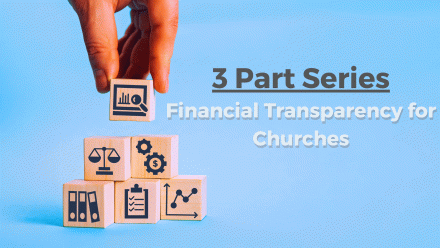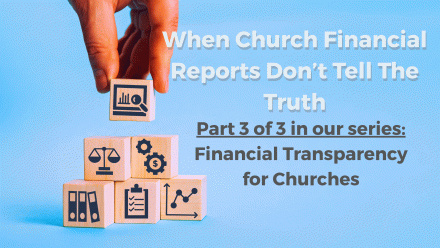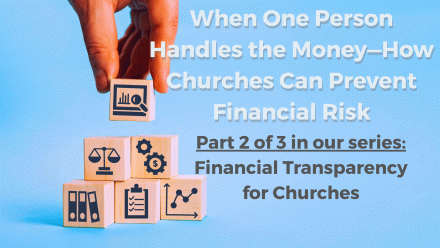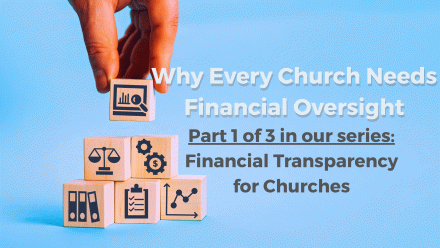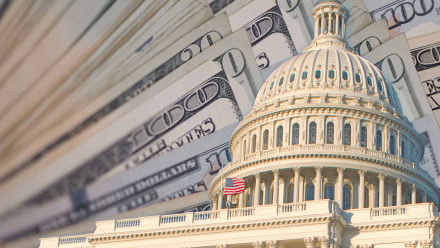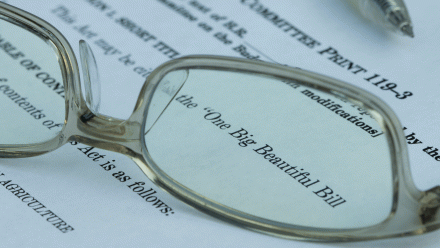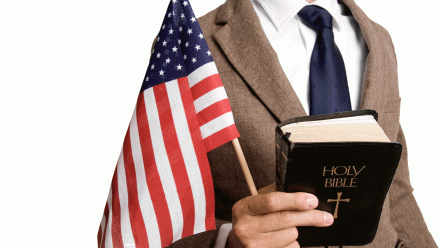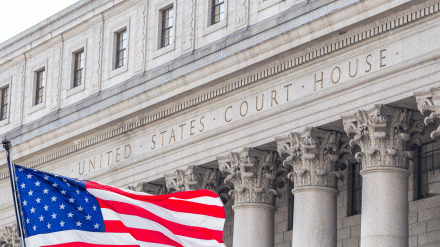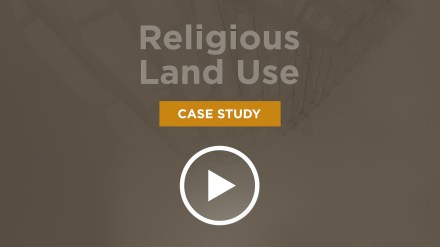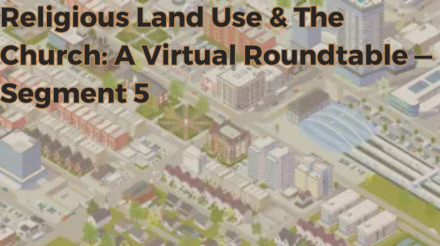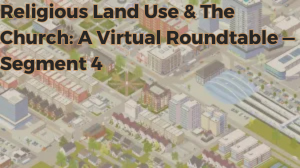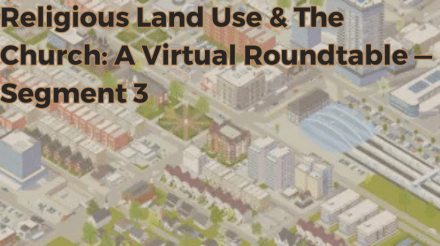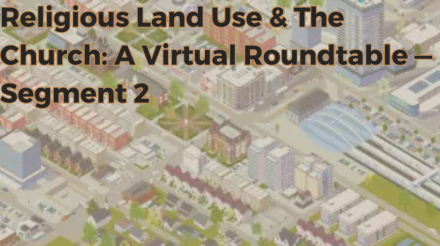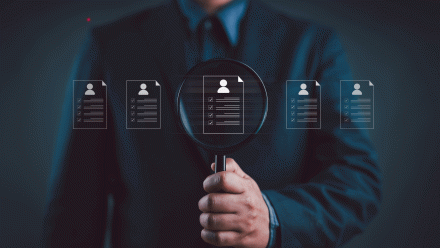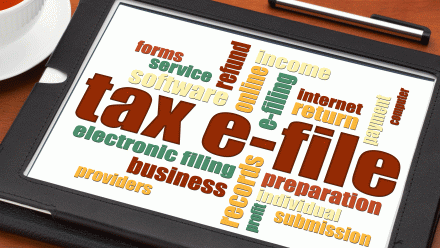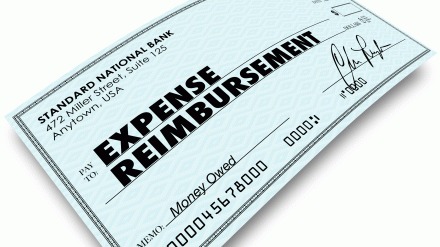Editor’s Note: This updated version, current as of July 17, 2025, incorporates new section numbers and content and excludes section numbers and content, that do not appear in the final, enrolled version of H.R. 1.
On July 3, 2025, Congress passed President Trump’s 1,150-page “One Big Beautiful Bill Act” (“OBBBA”), H.R. 1, which he signed into law the next day.
Church Law & Tax’s tax resources, such as the comprehensive Church & Clergy Tax Guide, will be updated with more in-depth analysis and explanations. But for now, we offer this executive summary of provisions within OBBBA that are of greatest relevance to churches and clergy.
Five Key Provisions
- Section 70101 makes permanent the modified federal income tax bracket schedule and lower tax rates created by prior law and adds an additional year of inflation adjustment to all brackets except for the top bracket (37 percent).
- Section 70102 makes permanent the nearly doubled standard deduction created by prior law and further increases the standard deduction by including an extra year of inflation adjustment.
- Section 70424 creates a temporary deduction for non-itemizing taxpayers up to $1,000 for single filers ($2,000 for married filing jointly) for charitable cash contributions for tax years beginning after Dec. 31, 2025 through 2028. The charitable contribution must be made to a qualified charity and cannot be made to donor-advised funds or supporting organizations.
- Section 70426 establishes a floor equal to one percent of taxable income for the deductibility of corporate charitable contributions. In the case of a corporation with charitable contributions exceeding the 10 percent limit, the provision allows taxpayers to add the amount disallowed under the one percent floor to the amount carried over to the subsequent year.
- Section 70433 increases the filing threshold for Forms 1099 and 1099-NEC from $600 to $2,000. This provision is effective beginning with payments made in 2026. The threshold is also subject to inflation adjustments beginning in 2027. This will reduce the number of individuals who will need to receive a 1099 from a church.
Further reading for pastors and church leaders:
Key Sections of OBBBA Title VII, Chapter 1—Providing Permanent Tax Relief for Middle-Class Families and Workers
Key Sections of OBBBA Title VII, Chapter 2—Delivering on Presidential Priorities to Provide New Middle-Class Tax Relief
Key Sections of OBBBA Title VII, Chapter 4—Investing in American Families, Communities, and Small Businesses—Make America Win Again
Key Sections of OBBBA Title VII, Chapter 5—Ending Green New Deal Spending, Promoting America-First Energy, And Other Reforms
Key Section of OBBBA Title VII, Chapter 6—Enhancing Deduction And Income Tax Credit Guardrails, and other Reforms
Jump over to CPA and Church CFO Tim Samuel’s “7 Ways the One Big Beautiful Bill Act Impacts Churches and Ministries”
Title VII, Chapter 1—Providing Permanent Tax Relief for Middle-Class Families and Workers
Most tax provisions take effect on January 1, 2026.
Section 70101. Extension and Enhancement of Reduced Rates. This section makes permanent the modified federal income tax bracket schedule and lower tax rates created by the “Tax Cuts and Jobs Act (2017)” (TCJA). These were set to expire at the end of 2025.
This provision also adds an additional year of inflation adjustment to all brackets except for the top bracket (37 percent).
Key Point. The taxable income of many ministers will be substantially cut because of OBBBA. As a result, ministers may want to review their estimated tax payments and make adjustments based on the significantly reduced tax liability.
Section 70102. Extension and modification of rates. This section of OBBBA makes permanent the nearly doubled standard deduction created by the TCJA. This section further increases the standard deduction by including an extra year of inflation adjustment.
Additionally, for tax years beginning after 2017, this provision increases the standard deduction by an additional $1,000 for a single filer, $1,500 for head of household, and $2,000 for married filing jointly.
Section 70103. Termination of deduction for personal exemptions and enhanced deduction for seniors. Under prior law, the deduction for personal exemptions was set to return after December 31, 2025. This section permanently repeals the deduction for personal exemptions. This section also provides a deduction for tax years 2025 through 2028 for seniors (age 65 or older) of $6,000 per eligible filer, regardless of whether they are itemizers or non-itemizers, with a modified adjusted gross income that does not exceed $75,000 for single filers ($150,000 for married filing jointly). This deduction expires after 2028 unless extended by Congress.
Section 70104. Extension of $2,200 per-child child tax credit and temporary enhancement. Under prior law, the child tax credit would return to pre-2017 levels after December 31, 2025, and income phase-out levels would return to much lower thresholds, thus providing only $1,000 per child and making fewer American families eligible to receive the credit. Additionally, the $500 nonrefundable credit for non-child dependents would expire after December 31, 2025.
This section of OBBBA makes permanent a child-tax credit of $2,200 per child, maintains the increased income phase-out thresholds, and maintains the nonrefundable, non-child dependent credit.
Additionally, beginning after 2025, the child tax credit is adjusted for inflation.
Section 70106. Extension of increased estate and gift tax exemption amounts and permanent enhancement. This section of OBBBA permanently extends the estate and lifetime gift tax exemption, increases the exemption amount to $15 million for single filers ($30 million for married filing jointly) in 2026, and indexes the exemption amount for inflation going forward.
Section 70107. Extension of increased alternative minimum tax exemption and phase-out thresholds. This section of OBBBA permanently extends the increased individual alternative minimum tax exemption amounts and exemption phase-out thresholds.
Section 70108. Extension of limitation on deduction for qualified residence interest. Under prior law, the deduction for qualified residence interest, also known as the home mortgage interest deduction, was set to increase from the first $750,000 in home mortgage acquisition debt to $1 million after December 31, 2025. This section of OBBBA permanently lowers the deduction for qualified residence interest to the first $750,000 in home mortgage acquisition debt.
Section 70109. Extension of limitation on casualty loss deduction. Under prior law, the itemized deduction for uncompensated personal casualty losses resulting from a fire, storm, shipwreck, other casualty, or theft was set to return after December 31, 2025. This section of OBBBA permanently allows for the itemized deduction for only personal casualty losses resulting from federally declared disasters.
Section 70110. Termination of miscellaneous itemized deductions other than educator expenses. This section of OBBBA permanently eliminates miscellaneous itemized deductions that were set to return in taxable years beginning after December 31, 2025.
Section 70113. Extension of limitation on exclusion and deduction for moving expenses. This section of OBBBA permanently eliminates both the exclusion for qualified moving expenses reimbursement and the deduction for moving expenses, except for active duty members of the Armed Forces.
Section 70120. Limitation on individual deductions for certain state and local taxes. Under prior law, the itemized deduction for state and local taxes was capped at $10,000, or $5,000 for a married taxpayer filing a separate return (this is known as the “SALT cap”). This section of OBBBA increases the SALT cap to $40,000 in the case of any taxable year beginning in calendar year 2025, and $40,400 in the case of any taxable years beginning in calendar year 2026 but before calendar year 3030, when it drops to $10,000.
The cap phases down for taxpayers with modified adjusted gross incomes (MAGI) of more than $500,000 in the case of any taxable year beginning in calendar year 2025, $505,000 in the case of any taxable year beginning in calendar year 2026, and in the case of any taxable year beginning after calendar year 2026, 101 percent of the dollar amount in effect for taxable years beginning in the preceding calendar year.
For a married taxpayer filing a separate return, the bill strikes specific limitation amounts in favor of an application limitation amount that is “half the applicable limitation amount in the case of a married individual filing a separate return.”
Title VII, Chapter 2 – Delivering on Presidential Priorities to Provide New Middle-Class Tax Relief
Section 70202. No tax on overtime. This section creates an above-the-line deduction from tax years 2025 through 2028 for overtime premium pay during a given taxable year. This involves overtime compensation paid to an individual required under Section 7 of the Fair Labor Standards Act of 1938 that is in excess of the regular rate (as used in such section) at which such individual is employed. Highly compensated employees or those with earned income exceeding the dollar amount in effect under section 414(q)(1)(B)(i) of the Internal Revenue Code (IRC) are ineligible.
Section 70203. No tax on car loan interest. This section of OBBBA creates an above-the-line deduction for tax years 2025 through 2028 of up to $10,000 for qualified passenger vehicle loan interest during a given taxable year. The deduction phases out starting when the taxpayer’s modified adjusted gross income exceeds $100,000 ($200,000 in the case of a joint return). To be eligible, the passenger vehicle must have at least two wheels, be made primarily for use on public streets, roads, and highways, and have its final assembly occur in the United States.
Section 70204. Trump accounts. Starting January 1, 2026, parents may open a Trump account for eligible children with a bank or similar financial institution. Trump accounts are designed to incentivize education, entrepreneurship, and homeownership while promoting financial security.
Contributions may be made by parents, relatives, and other taxable entities as well as non-profit and government entities facilitated by the US Department of the Treasury.
This section also places certain limits and restrictions on contributions and distributions.
Title VII, Chapter 4—Investing in American Families, Communities, and Small Businesses
Section 70413. Additional elementary, secondary, and home school expenses treated as qualified higher education expenses for purposes of 529 accounts. Under prior law, “529 savings plans” are tax-advantaged accounts designed to fund education expenses, with federal law allowing tax-free withdrawals for the following qualified expenses: tuition (including up to $10,000 annually for K-12 education), fees, books, supplies, equipment required for enrollment, room and board (for students enrolled at least half-time), computers, software, internet access, special needs services, and costs for registered apprenticeship programs. This section of OBBBA allows “529 savings plans” to be used for additional educational expenses in connection with enrollment or attendance at an elementary, secondary, or home school.
Section 70414. Certain postsecondary credentialing expenses treated as qualified higher education expenses for purposes of 529 accounts. This section of OBBBA allows tax-free withdrawals (outlined in the Section 70413 summary above) from 529 savings plans to be used for additional qualified higher education expenses, including “qualified postsecondary credentialing expenses” in connection with “recognized postsecondary credential programs” and “recognized postsecondary credentials.”
Section 70416. Expanding application of tax on excess compensation within tax-exempt organizations. Under prior law, section 4960 of the tax code imposes an excise tax on excess compensation paid to certain highly compensated employees by tax-exempt organizations. The excise tax rate is equal to the corporate tax rate multiplied by the sum of (1) any remuneration in excess of $1 million paid to a covered employee for a taxable year, and (2) any excess parachute payment paid to a covered employee.
This section of OBBBA amends section 4960(c)(2) to, beginning in any taxable year starting after Dec. 31, 2025, define a covered employee as “any employee of an applicable tax-exempt organization (or any predecessor of such an organization) and any former employee of such an organization (or predecessor) who was such an employee during any taxable year beginning after December 31, 2016.”
Section 70424. Permanent and expanded reinstatement of partial deduction for charitable contributions of individuals who do not elect to itemize. Under prior law, only taxpayers who itemize were able to deduct their charitable contributions. For tax years 2025 to 2028, this section creates a temporary deduction for non-itemizing taxpayers up to $1,000 for single filers ($2,000 for married filing jointly) for charitable cash contributions. The charitable contribution must be made to a qualified charity and cannot be made to donor-advised funds or supporting organizations.
Section 70426. 1-percent floor on deduction of charitable contributions made by corporations. Under prior law, corporate taxpayers were generally allowed a deduction for charitable contributions up to a limitation equal to 10 percent of taxable income.
This section of OBBBA establishes a floor equal to 1 percent of taxable income for the deductibility of corporate charitable contributions.
In the case of a corporation with charitable contributions exceeding the 10 percent limit, the provision allows taxpayers to add the amount disallowed under the one percent floor to the amount carried over to the subsequent year.
Section 70432. Repeal of Revision of De Minimis Rules For Third Party Network Transactions. Under prior law, third-party settlement organizations, such as payment card companies, payment apps, and online marketplaces, must issue Form 1099-K to participating payees receiving gross payments exceeding $600 for goods or services, regardless of the number of transactions.
But implementation delays for this provision by the IRS resulted in a payment threshold of $5,000 or more, regardless of the number of transactions.
This OBBBA provision increases the threshold to $20,000, or more than 200 transactions, beginning after Dec. 31, 2024.
Section 70433. Increase in threshold for requiring information reporting with respect to certain payess. This increases the filing threshold for Forms 1099 and 1099-NEC from $600 to $2,000. This provision is effective beginning with payments made in 2026. The threshold is also subject to inflation adjustments beginning in 2027. This will reduce the number of individuals who will need to receive a 1099 from a church.
Title VII, Chapter 5—Ending Green New Deal Spending, Promoting America-First Energy, and Other Reforms
Section 70502. Termination of clean vehicle credit. Under prior law, taxpayers could claim a tax credit of up to $7,500 for clean new vehicles placed in service in a given taxable year. The credit was limited to incomes of $150,000 for single filers, $225,000 for head of household filers, and $300,000 for joint filers. It was also limited to varying Manufacturer’s Suggested Retail Prices (MSRPs) for different vehicle types. The credit was set to expire December 31, 2032.
This section of OBBBA accelerates the expiration to vehicles acquired after September 30, 2025.
Section 70505. Termination of energy efficient home improvement credit. This section of OBBBA accelerates the expiration of the tax credit for household energy efficient improvements to December 31, 2025. The value of the credit was 30 percent of qualified energy efficient improvements, residential energy property, or home energy audits not exceeding $1,200 annually ($2,000 if for heat pumps and biomass stoves).
Section 70506. Termination of residential clean energy credit. This section of OBBBA accelerates the expiration of a credit with respect to any expenditures made for solar electric, solar water heating, fuel cell, small wind energy, geothermal heat pumps, and battery storage in residences to December 31, 2025.
Section 70508. Termination of new energy efficient home credit. This section of OBBBA accelerates the expiration of an energy efficient credit for new homes to June 30, 2026.
Title VII, Chapter 6—Enhancing Deduction and Income Tax Credit Guardrails, and Other Reforms
Section 70607. Task force on the replacement of Direct File. This section of OBBBA sets aside money for the Treasury Department to look into and report back to Congress on, among other things, establishing public-private partnerships which would provide for free tax filing for up to 70 percent of all taxpayers, and to replace any direct e-file programs run by the Internal Revenue Service.
OBBBA (H.R. 1) full text:
Matthew Branaugh is an attorney and editor for Church Law & Tax.
Richard R. Hammar is an attorney, CPA and author specializing in legal and tax issues for churches and clergy.
